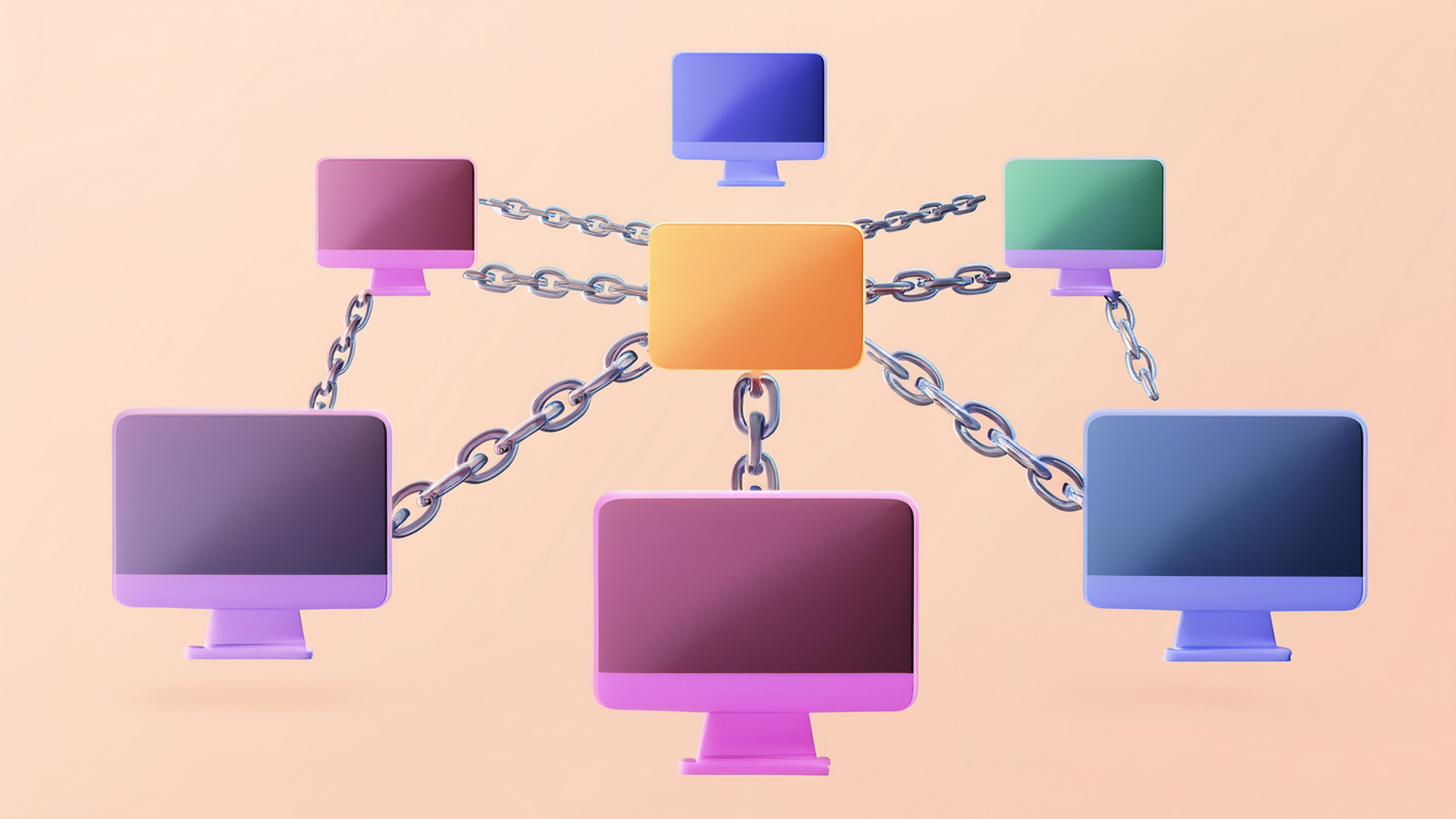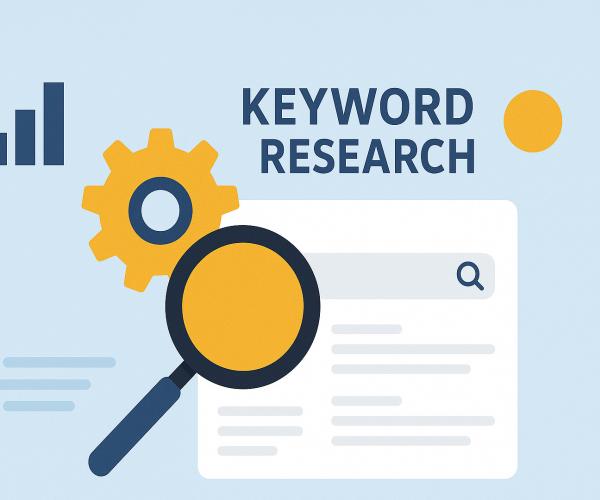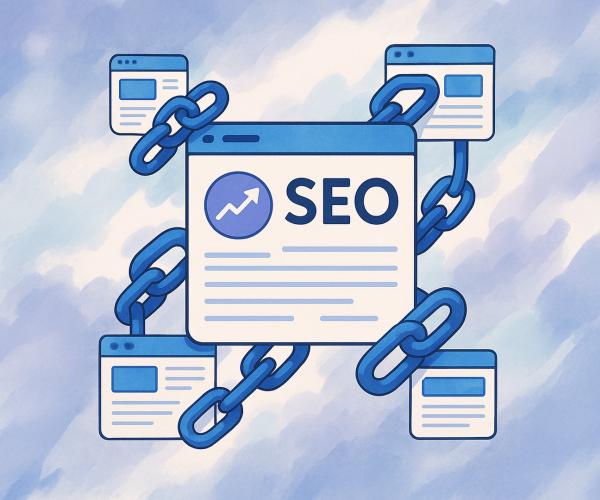The Role of Backlinks in Off-Page SEO: Needed and Necessary!
Search Engine Optimisation, or SEO for short, is all about making your website more visible in search engine results. It mainly breaks down into two key areas: on-page SEO and off-page SEO. In this post, we are gonna discuss the role of backlinks in off-page SEO.
On-page SEO focuses on things you can control directly on your website, like the content and how the site is structured.
On the flip side, off-page SEO includes actions taken outside your site to boost its ranking. A key part of a successful SEO strategy is understanding and effectively using off-page techniques.
Backlinks are super important for off-page SEO.
Think of these as endorsements from other websites, each link serving as a recommendation of the quality and value of your content. They not only highlight your site's credibility but also help boost your visibility online!
They signal to search engines that your stuff is valuable and trustworthy.
Back in the day, Google's original algorithm, PageRank, was all about analyzing number of backlinks you had and how good they were to judge a webpage's relevance.
Even with all the updates to search engine algorithms over the years, backlinks still rank as one of the top three factors for SEO, which highlights the ongoing importance of having a solid backlink strategy.
Decoding Backlinks: Definition and Significance
A backlink, also known as an inbound link or incoming link, is just a hyperlink on one website that directs users to another.
Usually, this link is found within anchor text, which is the visible, clickable part of the hyperlink.
It's important to know that referrals are different from other types of links:
- Internal links connect various pages within the same website, helping with navigation and spreading link equity around.
- Outbound links are the ones from your site to other external sites, often used to credit sources or add extra context.
This post is mostly about the role of backlinks in off-page SEO —the external votes of confidence that really make a difference in how well a website performs in search results.
External links boost a site's overall authority and credibility, making it look like a trustworthy source to both search engines and users.
A site with a healthy backlink profile is seen as more reliable.
On top of that, backlinks can bring in valuable referral traffic, since users clicking on them are led straight to your content, which can increase engagement and conversions.
They also help raise your brand awareness and overall online visibility both in search engine result pages and elsewhere.
The more sites that link to your content, the higher the chances that new users will find your brand.
Lastly, backlinks help get new content indexed faster by search engines.
When established sites link to your new pages, it helps search engines find and index that content more quickly.
They also play a role in showcasing E-E-A-T (Experience, Expertise, Authoritativeness, and Trustworthiness), a key factor in how Google rates content quality.
The Integral Role of Backlinks in Off-Page SEO
Backlink building is a key part of off-page SEO, which involves different tactics done outside of your website to boost its performance in search results.
While off-page SEO also includes things like:
- Social media marketing
- Brand mentions
- Managing your online reputation
- Teaming up with influencers
- Content sharing
- Local SEO initiatives
Still, getting high-quality backlinks is often seen as one of the most important and impactful strategies.
Even though a solid off-page strategy covers a lot of ground, backlinks usually act as the foundation for other efforts, greatly affecting how search engines view a site's authority and trustworthiness.
The main role of backlinks in off-page SEO is to show search engines that a website is credible and relevant. Every backlink is like a thumbs-up or a vote from the linking site for the content on the target site.
But not all votes carry the same weight!
Backlinks from high-authority sites are more valuable and transfer more "link juice" to the linked site.
Also, how relevant the linking site’s content is to the topic at hand matters a lot.
The Influence of Backlinks on Off-Page SEO Performance
Backlinks have a big impact on off-page SEO and can affect a bunch of important factors that help a website succeed in search results.
Earning backlinks can really boost your search engine rankings if you are a starter.
Even though Google doesn’t show PageRank anymore, the idea behind link analysis still shapes its algorithms.
Plus, the number of different websites linking back to your site is a major factor in how well you’ll rank.
This means it’s more advantageous to get backlinks from reputable sites instead of just piling on links from one domain.
Backlinks also play a key role in establishing your site's authority, which is often measured by metrics like Domain Authority (DA).
When respected sites link to your content, they pass on some "link equity," which helps raise your site's authority.
On top of that, backlinks help drive more organic traffic to your site:
Better search engine rankings, influenced by the quality and quantity of your backlinks, lead to higher visibility in search results.
With that increased visibility, more people are likely to click on your listing, bumping up your organic traffic.
Also, links from related sites can bring in direct referral traffic:
When folks on other sites see a link to your content that catches their eye, they’re more likely to click, sending valuable, targeted traffic your way.
So, backlinks really work double duty by boosting your visibility in search results while also delivering traffic through referrals from other sites.
Strategic Backlink Creation for Off-Page SEO Success
Creating a solid backlink profile takes some thought and a bit of honesty.
There are quite a few ways to snag high-quality backlinks that really boost your off-page SEO game:
#1 Creating High-Quality, Linkable Content to Get High-Quality Backlinks
One of the best ways to score backlinks is by creating content that's actually valuable, informative, and interesting enough that other website owners will want to link to it as a resource for their readers. So, producing some attractive content could result in to build backlinks.
This means crafting "linkable assets" like eye-catching infographics that make data easy to understand, comprehensive guides that cover a topic in-depth, original research that shares unique insights, or handy tools and calculators that users find useful. This process can build high-quality backlinks to your website (and content).
Content that really hits on what your audience is struggling with, thoroughly answers their questions, or gives fresh viewpoints is way more likely to get those organic backlinks.
#2 Guest Blogging: One Of Classical Off-Page SEO Techniques
One great way to boost your online presence is by writing articles for other respected sites in your field.
Just make sure to throw in a backlink to your own site, either in the article or your author bio.
The trick for successful guest blogging is to really focus on offering real value to the audience of the site you’re writing for, instead of just aiming for that backlink.
By sharing your knowledge and insights on the right platforms, you can snag a valuable backlink and put your brand in front of a whole new group of potential customers.
#3 Broken Link Building Enriches Your Backlink Profile
This technique is all about finding broken links (you know, those pages that throw up a 404 error) on websites that are in your niche.
Once you spot them, you can reach out to the site owner and suggest that they swap out the dead link for a link to your own awesome content that fits the topic.
It's a win-win because you're helping them fix a broken link, which makes their site better for users, and you're snagging a valuable backlink for yourself at the same time.
#4 Unlinked Brand Mentions Can't Increase Your Domain Authority
Keep an eye on the internet for times when people mention your brand or company without linking back to your website.
When you find these, reach out to the website owner or the author and kindly ask them to add a backlink.
Using brand monitoring tools can help with this by sending you alerts whenever your brand gets mentioned online.
#5 Resource Page Link Building Serves to Both On-Page SEO and Off-Page
A lot of websites, especially in the education or info space, have resource pages that share useful links on specific topics.
Check out these pages in your field, and if your content fits and really adds value, reach out to the owner and suggest they include your resource.
#6 Link Roundups: A Shortcut For Better Search Engine Ranking
Check out blog posts that come out regularly, like daily, weekly, or monthly, and gather some of the best stuff on a specific topic.
These "link roundups" often direct you to top-notch resources. If you've got something you’ve written that fits into a relevant roundup, drop a message to the curator and suggest they include your piece in their next post.
#7 HARO (Help A Reporter Out) and Digital PR in Your SEO Strategy
Platforms like HARO help connect journalists with experts for their articles.
If you sign up as a source and respond to media requests related to your expertise, you can score some high-authority backlinks from news sites and other publications.
Plus, if you come up with newsworthy stories, do original research, or create interesting data, you could grab the attention of journalists and get valuable backlinks from online publications.
#8 Ethical Directory Submissions were Always One of The Common Off-Page SEO
These days, general website directories aren’t as useful as they used to be, but getting your site listed in trustworthy and specific directories related to your field can still be a good idea.
Just make sure to pick ones that are well-run and actually relevant to your industry–steer clear of anything that looks spammy or low-quality.
#9 Networking and Partnerships Should be a Part of Your SEO Checklist
Building real connections with other businesses, bloggers, and influencers in your field can really help you find link-building opportunities.
Teaming up on stuff like co-hosting webinars, working together on research reports, or writing articles together can easily lead to backlinks from your partners’ sites.
#10 Sponsoring Events or Charities to Get More SEO Backlinks
Getting involved with local events, industry meetups, or charity organizations can help you score some mentions and backlinks on their websites or in their promotional stuff.
This is a great way to boost your local SEO and pick up some relevant backlinks.
#11 Leveraging Testimonials and Reviews into Different Types Of Backlinks
If you've got happy customers or clients, why not ask them for a quick testimonial to showcase on your website? These backlinks could be dofollow or nofollow.
They might even be cool with putting your testimonial on their site, too, which could mean a nice backlink to yours!
#12 Content Syndication Could Lead to Acquiring High-Quality Backlinks
Sharing your content on other trusted sites can help it reach a wider audience and might even get you some backlinks, even if they’re usually "nofollow" links.
While those "nofollow" links don’t really boost your SEO directly, they can still bring in traffic and help people notice your brand more.
#13 Updating Old Content Enhances your On page and Off Page SEO
If you've got content on your website that’s already gotten some backlinks, make sure to keep it fresh and current.
When you give something a nice update or make it better, reach out to the sites that are linking to it and let them know about the new version.
They might be cool with updating their link to point to the latest and greatest.
#14 Creating Free Tools Like The Keyword Tools Attracts More Traffic
Creating handy free tools or templates that fit your industry can really help you snag some backlinks.
Bloggers and websites love to link to useful stuff they can share with their audience.
#15 Competitor Backlink Analysis is an Important Pillar in Link Building Strategies
Checking out the backlink profiles of your top competitors can give you some great ideas for building links.
By looking at which sites are linking to them, you can see if those same sites would also be interested in linking to your stuff.
#16 Does Internal Linking Optimization Influences Off-Page SEO Strategy?
Even though it’s not exactly an off-page tactic, getting your internal linking right on your website is super important for sharing the link juice you get from backlinks with other key pages on your site.
This can really help boost the overall authority and ranking potential of your whole website.
Mixing in a bunch of these ethical and effective strategies is the best way to create a solid and natural backlink profile, which will help you achieve lasting success in off-page SEO.
Discerning Quality: Evaluating Backlink Characteristics and Relevance
As mentioned before, not all backlinks are the same, so it’s super important to know what makes a backlink valuable for your SEO game.
On the flip side, you also need to spot the toxic backlinks that could hurt your efforts.
A big sign of a good backlink is the authority of the site that’s linking to you.
Links from websites with high Domain Authority (DA), Domain Rating (DR), or Authority Score (AS) are usually better because they pass along more "link juice" and show search engines that your site is trustworthy.
It’s also crucial that the linking page and website relate to your content.
A backlink from a site that's in your niche carries more weight since it acts like a recommendation.
The spot where the link appears on the page matters too.
Links found in the main content are more valuable than those stuck in footers or sidebars since users are more likely to notice and click on them.
The anchor text used in the backlink gives search engines context about what your linked page is about.
Relevant and natural anchor text with keywords related to your site can boost the backlink's value even more.
Whether a link is "dofollow" or "nofollow" matters too.
"Dofollow" links pass on link equity and can help with rankings, while "nofollow" links usually don’t, although that’s changing a bit.
Lastly, backlinks from websites that actually get traffic can bring real referral traffic to your site.
On the other hand, low-quality or harmful backlinks usually come from spammy or irrelevant sites with low authority.
Signs of bad backlinks include super low domain authority, sketchy or auto-generated content, no relevance to your niche, way too many outbound links, and anchor text that feels forced or unnatural.
There are many SEO tools like Seobility out there to help you find potentially toxic backlinks by checking these and other factors.
The Search Engine Perspective: How Backlink Quality and Relevance are Assessed
Search engines like Google use advanced algorithms to check out the quality and relevance of backlinks, looking to spot real endorsements while ignoring sketchy link-building tricks.
One of the main things they focus on is how trustworthy the site giving the link is.
They look at different factors, like how good the content on that site is, how engaged the users are, the site’s history, and its existing backlinks to gauge its authority.
Plus, it’s super important how closely the linking site’s content relates to the one being linked to.
Links from sites in the same industry or niche are especially valuable because they show a real connection.
Search engines also pay close attention to the anchor text–the clickable part of the link.
While using relevant keywords in anchor text can be a plus, going overboard with exact-match anchor text might raise a red flag.
A mix of anchor text types, including brand names, general phrases, and relevant keywords, is usually what they prefer.
Beyond Ranking: The Impact of Backlinks on Organic Traffic and Visibility
When it comes to backlinks in off-page SEO, most people think about how they can boost their search engine rankings.
But their benefits go way beyond just climbing those rankings; they really help improve organic traffic and overall online visibility too.
Quality backlinks can lead to better click-through rates (CTR) because when your site ranks higher, more people see it and are likely to click.
Plus, when those backlinks come from reputable sources, it builds your brand's credibility and makes users more inclined to trust and click on your link.
But it’s not just about getting clicks; backlinks also boost your overall online presence and help more people discover your brand.
When authoritative sites link to yours, it introduces your brand to a broader audience who might not have found you otherwise.
These links can drive targeted traffic since visitors are coming from sites related to what they’re interested in.
This means you’re more likely to reach potential customers and grow your brand awareness.
Ultimately, consistently showing up in search results for the right keywords, thanks to a solid backlink profile, helps people remember your brand over time.
Navigating the Risks: Understanding and Mitigating the Negative Impacts of Bad Backlinks
Backlinks are super important for off-page SEO, but it’s essential to watch out for the downsides of low-quality or "toxic" backlinks.
Getting links from sketchy or spammy sites can get you into trouble with search engines, leading to penalties that could hurt your rankings.
Plus, being linked to bad sites can mess with your website's reputation, affecting how both search engines and users view you.
Bad backlinks can seriously drag down your search engine rankings and organic traffic, making your overall SEO efforts less effective.
Resorting to shady link-building tactics can waste your time and resources, too.
To avoid these issues, make it a habit to keep an eye on your backlink profile using tools like Google Search Console, Seobility, or Backlink-Tool.
If you notice a bunch of toxic or spammy links pointing to your site, you might want to use Google’s Disavow Tool to tell them to ignore those links.
Just be careful and make sure you really get how it works. Ultimately, the best move is to focus on building solid, natural backlinks from trustworthy sources to help balance out any harmful links in your profile.



